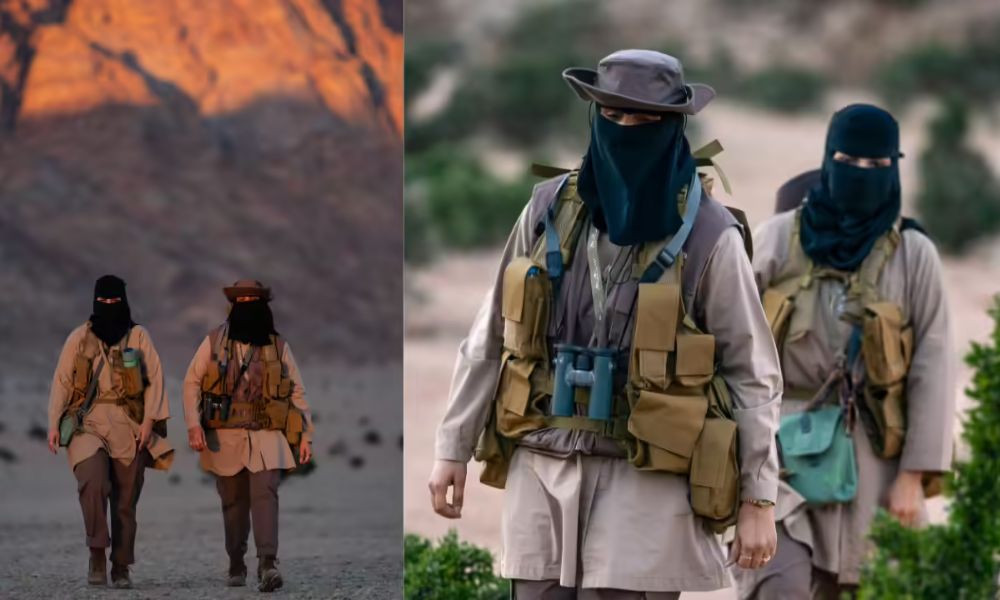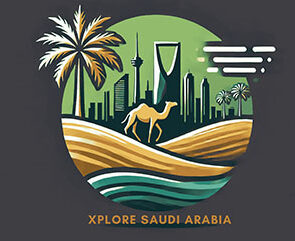
On World Ranger Day, July 31, 2025, the Prince Mohammed bin Salman Royal Reserve unveiled a historic initiative—the Middle East’s first all-female sea ranger corps. These trailblazing women join the Reserve’s broader ranger team of 246 members, in which 34% are female—just 1% shy of Saudi Vision 2030’s target for women in the workforce.
These pioneering sea rangers patrol a 170 km stretch of the Red Sea coastline, integrating with male rangers and Saudi Border Guard units to monitor marine biodiversity, enforce environmental regulations, and support ecosystem protection efforts.
From Land to Sea: Training and Transforming
Before July 2025, female rangers at the Reserve served exclusively on terrestrial patrols. A marine training and swimming program, launched in July 2024 under South African conservationist Dominique du Toit, enabled the first cohort of seven women to qualify as sea rangers a year later.
Their rigorous training includes swimming, first aid, self‑defense, conservation techniques, ecological monitoring, and monthly fitness assessments. The next phase: skipper training for those ready to pilot marine patrol vessels
Among the first recruits is Ruqayyah Awadh Al-Balawi, a ranger of three years and a now-qualified sea ranger. She shared: “I have discovered a whole new world underwater… I dream of the day when a woman serves as the skipper of the Reserve’s marine patrol boat.” Another ranger, Ghaida from Al‑Wajh, described her journey from fear of swimming to newfound confidence, mental focus, and stress reduction through training
Toward Gender-Equal Conservation
Globally, only 11% of conservation rangers are female, with women representing just 1% of the blue‑economy workforce—an acute imbalance, particularly in marine sectors.
Saudi Arabia’s Sea Ranger Corps is not only symbolic—it’s a systemic intervention. Since the Reserve’s first ranger recruitment in 2021, women were actively encouraged to apply, and today they account for 34% of staff, well above the global average and nearly meeting national policy goals.
Reserve CEO Andrew Zaloumis emphasises that women bring “essential skills to conservation,” and the initiative showcases through action that “women belong in this field and bring real value”—especially as Saudi Arabia works toward preserving 30% of its land and sea by 2030 under the Saudi Green Initiative.
Safeguarding Biodiversity: Ecosystem at Risk
The marine zone under Belong Reserve covers 3,856 km², about 1.8% of Saudi Arabia’s territorial waters, yet harbours 64% of the Kingdom’s coral species and 22% of its fish species, in addition to endangered Hawksbill and Green turtles, spinner dolphins, dugongs, whale sharks, and vital gray mangrove habitats
The new sea rangers, operating two custom-designed patrol boats, are critical in ecological monitoring, data collection, wildlife protection, and ensuring environmental compliance—extending protection from inland terrain into the sea
Empowering Communities and Pioneering Progress
The reserve’s culture of local engagement is especially meaningful: of 246 rangers, 88% are drawn from local communities, reflecting a mandate for sustainable employment and conservation rooted in local knowledge and social empowerment
The female sea ranger corps embodies this shift—facing traditional barriers with courage, like Rogayah Awad Al‑Balawi, who overcame family scepticism to become one of the first local female nature rangers, now helping transform local perceptions of women’s roles in Saudi society
Impact and Next Horizons
Gender Inclusion Milestone: A pioneering model for marine conservation across the Middle East, raising female ranger presence to 34% and offering a replicable blueprint for other protected areas.
Conservation Impact: Strengthened monitoring of critical marine biodiversity and improved stewardship of endangered species and habitats.
Career Pathways: Female rangers now access national training, leadership opportunities, and potentially skipper roles in marine patrol—a career arc previously unavailable.
Cultural Shift: Breaks stereotypes, opens space for women in non-traditional roles, and inspires further societal reform in line with Vision 2030.
What Lies Ahead
Scaling Up: Plans to expand the sea ranger corps beyond the initial seven as training continues and interest grows.
Leadership Roles: Preparing female rangers for vessel command and advanced marine navigation roles.
Replicable Model: Other reserves and regional organizations are reportedly looking to apply similar gender-inclusive frameworks in conservation employment
Long-term Monitoring: Tracking environmental outcomes, career progression, and community engagement to evaluate impact over time.
Conclusion
The launch of Saudi Arabia’s all-female sea ranger corps is more than a symbolic milestone—it’s a tangible, signed commitment to gender-balanced conservation, local empowerment, and marine ecosystem protection. These women are reshaping environmental stewardship in the Kingdom, charting a new course for marine protection and societal progress.


